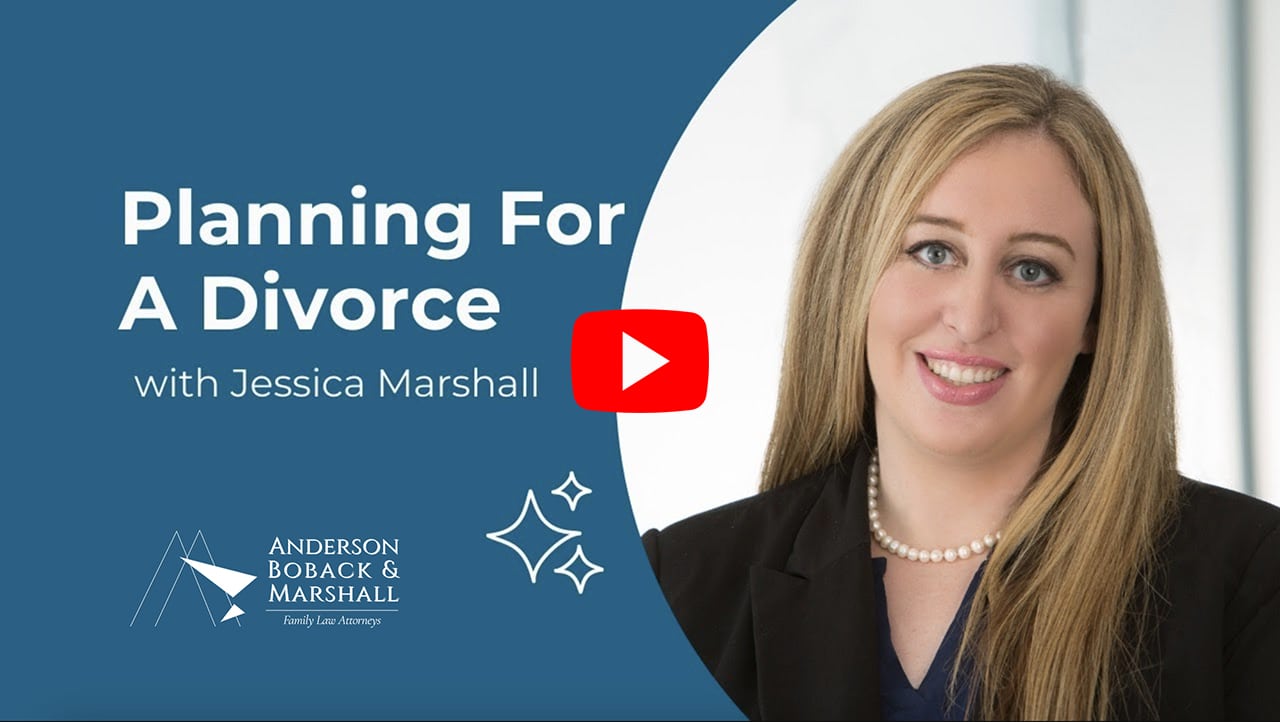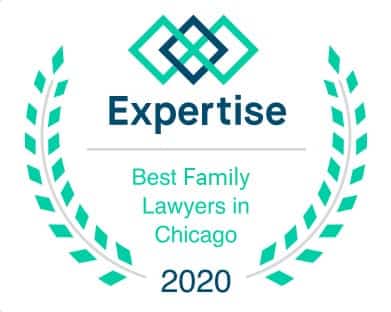
Home / Child Guardianship
Chicago Child Guardianship Lawyers
Guardianship for a child generally becomes necessary when the child’s parents are no longer able to care for their child on a long-term basis. When a child no longer has a parent, who can make decisions for them, an adult needs to be appointed as the caregiver and decision-maker for that child to ensure that the child is cared for in the absence of their parents. Without the authorization granted by a guardianship, caregivers can often find they are unable to access medical care, enroll the child in school, or make other critical decisions for that child.
Whether the parent cannot be physically present to care for the child or is not an appropriate caregiver (as when a parent is incarcerated or has a substance abuse issue), it is time to seek legal advice from the experienced child guardianship attorneys at Anderson Boback & Marshall.
Legal Guardianship of a Child in Illinois
The purpose of guardianship is to ensure that the child has an appropriate and willing caregiver in the absence of their parents. Unlike adoption, guardianships are not permanent. They do not dissolve the parents’ parental rights, and they can be dissolved if the parent, or parents, are able to make a showing that they are now able and willing to care for the child and would be an appropriate caregiver. Additionally, guardianships end when the child turns eighteen and do not convey any inheritance rights, unlike an adoption.
How to Establish a Guardianship for a Child
For every child, there are two guardianship roles: guardian of the person and guardian of the estate. One person can hold both roles, but those roles can also be divided between multiple adults. The guardian of the person is responsible for making decisions for the child in the areas of care, support, education, and medical treatment. The guardian of the estate is responsible for any money or property belonging to the child.
What is Involved Being a Legal Guardian
For every child, there are two guardianship roles: guardian of the person and guardian of the estate. One person can hold both roles, but those roles can also be divided between multiple adults. The guardian of the person is responsible for making decisions for the child in the areas of care, support, education, and medical treatment. The guardian of the estate is responsible for any money or property belonging to the child.
Generally, guardians are family members or friends of the child who have an already established relationship with the child. In some circumstances, the guardian may already have been acting as a caregiver for the child and is seeking to formalize the situation by seeking guardianship.
PETITION FOR GUARDIANSHIP OF A MINOR
To become a child’s guardian, for either the person and/or the estate, the adult seeking guardianship must file a Petition for Guardian of a Minor stating both why the child needs a guardian and why this particular adult, or adults, would be an appropriate as guardian(s) for the child. The petitioner(s) must meet the following qualifications to be appointed:
- Be at least eighteen years old.
- Be a resident of the United States.
- Be of sound mind.
- Not be legally disabled; and
- Not have a felony conviction that involved harm or threat to a child.
Types of Guardianships
There are three types of guardianships: plenary, standby, and short-term guardians.
Plenary Guardian
A plenary guardian is someone who assumes that role for the long term and will only occur under certain circumstances. A plenary guardian can only be appointed by a judge, and only under the following circumstances:
- The parents are deceased.
- The parents are unable or unwilling to make daily decisions for the child.
- The parents voluntarily left the child with another adult and did not return.
- The parents agree to the guardianship.
- The parents are detained, arrested, removed, or deported because of immigration issues.
Once a guardian is appointed, that person cannot give up that role unless a judge rules:
- that there is a parent willing or able to resume caring for the child; or
- another individual is willing to assume guardianship of the child. Once the child turns eighteen, the guardian no longer has a formal responsibility or authority for the child.
The individual petitioning for plenary guardianship must provide information to the court about the whereabouts of the parents. The guardian must also provide the parent(s) with notice of the time and place of the hearing to appoint a guardian so that the parent(s) can object to the guardianship if they choose to do so. In the event that there is an able and willing parent whom the court deems appropriate, guardianship should not be granted because the guardian has not made a sufficient showing that guardianship is necessary.
Standby Guardian
A standby guardian is someone selected by the parent to become a guardian if a parent or current guardian is unable to care for the child due to illness, death, or long-term separation from the child. A standby guardian does not require a judge’s approval, but there must be a written designation of a standby guardian witnessed by two other people. A standby guardian must meet the following requirements:
- The parent or legal guardian dies.
- The parent or legal guardian consents.
- The parent or legal guardian can no longer make or carry out daily childcare decisions for the child; or
- The parent or legal guardian is detained, arrested, removed, or deported because of immigration issues.
Short-Term Guardian
Finally, there is a short-term guardian. A short-term guardian can be appointed when a parent knows they will be unable to make daily decisions for their child for a finite period and that parent is willing and able to resume responsibility for the child when that time expires. One example would be a parent in the military who is going to be deployed. That parent could name a short-term guardian for the duration of their deployment, which would expire once the parent returned home and could resume responsibility for the child.
Like a standby guardian, short-term guardianship does not require a judge’s approval but must be in writing and witnessed by two other people. The short-term guardianship should include an end date and generally should not last longer than a year. The short-term guardianship will also expire when the parent returns home and is able to resume responsibility for the child.
Common Questions About Child Guardianship
How Long Does it Take to Get a Child Guardianship?
If all your paperwork is in order, and the court is satisfied that you are acting in the minor’s best interest, it will likely take you a couple of months to complete everything. On your first court date, the judge will appoint a guardian for the minor, called a “Guardian Ad Litem” or GAL. That person is charged with making sure that everything is valid, and the GAL serves as a kind of investigator for the judge. Once the GAL reviews the case and finds no problems, your case will move to finalization.
At What Age Does a Child Get Notified When a Guardianship Petition is Filed?
It is important to note that children over the age of fourteen are to receive notice of when someone is seeking guardianship of them and can provide input to the judge and, if appointed, a Guardian ad Litem regarding who they want to as their caretaker. This can play an important decision in who is appointed as guardian if there are multiple individuals petitioning for guardianship of the child.
Do You Have to Give Notice to a Child’s Relative?
The court will want to see that you have given notice of your intention to be a guardian by giving the child’s relatives notice of the proceeding. You do that with a form called a “notice of motion.” In that notice, you are telling all interested parties that you will be appearing in court and asking the judge to allow you to be the child’s guardian. There might be a relative that objects to you becoming the guardian, and that is the purpose of giving everyone notice. The way the court system is set up now, you will need to file that notice, along with the Petition for Guardianship, by e-filing it with the court system. Right now, there is no ability to go into court and file paper copies. Additionally, when filing this notice, make sure you give it enough time. You cannot serve it the day before you are in court. There must be adequate time to give all interested parties the opportunity to appear in court.
How is a Guardianship Terminated?
Typically, guardianship ends the same way it starts, by filing a petition with the court. If someone has guardianship of your child, you can file a petition to terminate that guardianship and ask the court to place your child back in your care. It is trickier when you want to end the guardianship but there is no one else to take your place. In that instance, you will likely need the help of a seasoned attorney who practices in this area of child custody law.
Seeking Legal Guardianship of a Child? Anderson Boback & Marshall Can Help
Experienced child custody lawyers know when to pursue a legal guardianship case and when the time is not ideal. That’s why we always recommended consulting with an attorney experienced in child guardianship before you decide if it is right for your family situation.
Get in touch with us for a consultation to discuss your situation and determine the best course of action for your case.


















